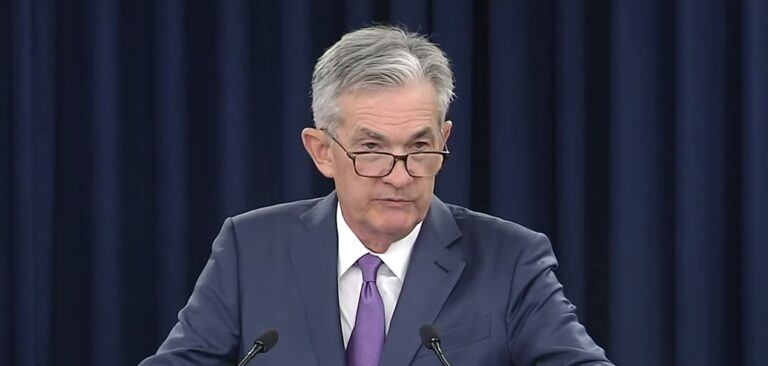According to data from CryptoCompare, around 5:00 UTC on Friday (April 10), the price of Bitcoin dropped below $7,000 for the first time since Monday (April 6).
As you can see from the BTC-USD price chart shown below, at the time of writing (11:23 UTC on April 10), Bitcoin is trading at $6,917, down 5.6% in the past 24-hour period:

This must be highly disappointing for investors in Bitcoin especially because yesterday the crypto community witnessed a historic event: a Bitcoin fund got listed on a major stock exchange for the first time.
More specifically, 3iQ Corp., a Candian digital asset management firm, managed to get its $14 million Bitcoin fund (“The Bitcoin Fund”), which works in a smilar manner to an exhange-traded product (ETP), listed on the Toronto Stock Exchange (ticker: QBTC.U). This product tracks the BTC price using an index feed that was developed as a result of a partnership between crypto market data provider CryptoCompare and MV Index Solutions (MVIS), which is a subsidiary of the European division of asset management firm VanEck.
Here is what Tyler Winklevoss, Co-Founder and CEO of digital asset exchange Gemini, which is providing the custody solution for the fund, had to say about this event:
'The Bitcoin Fund' just launched on the Toronto Stock Exchange. This is the first public bitcoin fund listed on a major global stock exchange. Proud that @Gemini was selected as the custodian for this fund. Congrats to @3iq_corp for making history! https://t.co/YtjFqSh6K5
— Tyler Winklevoss (@tylerwinklevoss) April 9, 2020
The Bitcoin Fund is the first bitcoin fund in the world that can be redeemed at NAV. It has been approved by the Ontario Securities Commission, a major securities regulator, and is easy for investors to access. Let's get this party started! 👍🚀
— Tyler Winklevoss (@tylerwinklevoss) April 9, 2020
Bitcoin’s price drop today — and its poor performance in Q1 2020 (-10.20% against USD) — must also be frustrating in light of all the money printing currently being done by the world’s central banks in a bid to stop the global economy from going into a depression as a result of the economic impact of COVID-19.
In fact, on March 26, the Gemini CEO referred to Bitcoin as the only asset that can protect investors from the high rate of inflation that many economists expect to see as a result of massive money printing:
Bitcoin is the only vaccine in the world that can give you immunity to the money printing disease.
— Tyler Winklevoss (@tylerwinklevoss) March 26, 2020
Well, yesterday, we found out via the Federal Reserve’s latest statistical release (“Factors Affecting Reserve Balances of Depository Institutions and Condition Statement of Federal Reserve Banks”) that on Wednesday (April 8) the size of the Fed’s balance sheet had reached a new record high: $6.13 trillion. Of this amount, $3.63 trillion is held in U.S. Treasury securities and $1.45 trillion is held in mortgage-backed securities.
This $6.13 trillion figure is roughly $830 million (or 15.66%) higher than it was on March 26 when the Gemini CEO tweeted about the “money printing disease”.
This is what a Reuters report said yesterday about the latest surge in the size of the Fed’s balance sheet:
“In the four weeks since the Fed slashed interest rates to zero, restarted bond purchases and rolled out an unprecedented range of programs to limit the economic damage from the outbreak, the central bank’s balance sheet has jumped by about $1.7 trillion. Bond holdings surpassed $5 trillion for the first time.
“In all, the portfolio is now the equivalent of more than a quarter of the size of the U.S. economy before the crisis struck, and will certainly grow larger in the weeks ahead as the Fed keeps piling on assets and the economy shrinks.”
Yesterday, the Fed also issued a press release, which stated that it had initiated a $2.3 trillion lending program in order to support the U.S. economy; this funding will “assist households and employers of all sizes and bolster the ability of state and local governments to deliver critical services during the coronavirus pandemic.”
Jerome H. Powell, the Federal Reserve Board Chair, had this to say:
“Our country’s highest priority must be to address this public health crisis, providing care for the ill and limiting the further spread of the virus.
“The Fed’s role is to provide as much relief and stability as we can during this period of constrained economic activity, and our actions today will help ensure that the eventual recovery is as vigorous as possible.”









